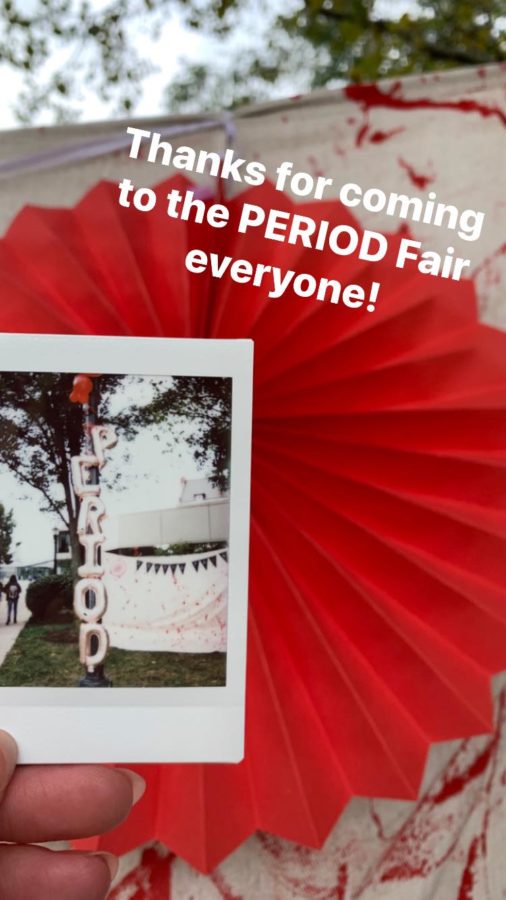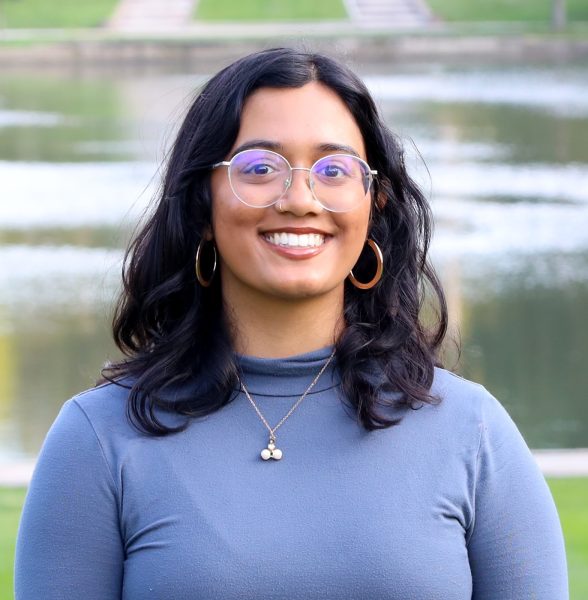Period Fair was a bloody good time
Courtesy of Period@CWRU Facebook
Period Fair came to Thwing with speakers and games for this menstruation celebration
October 8, 2021
I’ve been hiding something. Apart from my roommate and my mom, no one has ever seen me holding a pad when heading to the bathroom. And it’s not just me—recently, I witnessed someone shush their friend for panicking about their early period, discreetly pointing to a group of men nearby who might’ve overheard. Whether we say “Aunt Flo,” “girl flu” or “shark week,” periods are culturally singled out as a taboo subject, never to be spoken about openly in public. I’ve been actively concealing something completely natural about my body as if it’s some hideous secret, and quite frankly, it’s exhausting.
And I’m not the only one who feels this way. Many women and transgender men across the country are affected by period stigma when discussing menstruation, if we discuss it at all. Nearly half of U.S. women have experienced period shaming. Beyond internalized shame, all the hush-hush around periods gives the impression that periods are “gross” and “unclean.”
Additionally the less we want to talk about periods, the less likely action combatting period poverty becomes. Many menstruators face barriers to accessing pricey menstrual products. In some countries, children are often forced to miss valuable educational time because of both humiliation and a lack of menstrual accommodations in school bathrooms.
Thankfully, global humanitarian and nonprofit organizations are trying their best to tackle the period crisis. In particular, Case Western Reserve University’s Period at CWRU is one of many chapters across college campuses that advocate for the destigmatization of menstruation and the elimination of period poverty worldwide, with donation drives, fundraisers and guest speakers. And on Saturday, Oct. 2, they held the Period Fair.
If you walked past the Claud Foster Park next to Thwing that Saturday, you would have seen pink balloons, picnic tables with red tablecloths strewn about and volunteers in pink and red, directing lively activities. Upon arrival, the first twenty people who brought a pack of pads for donation received a lovely crimson bag filled with gourmet popcorn. Students laid around on picnic blankets and listened to speakers present on reproductive health and abortion rights.
As soon as I showed up, I immediately saw the crafts table towards the entrance. There, participants forged art from period liners, creating cute paint designs. I stopped at booths hosted by groups with intersectional advocacy—some were grassroots organizations proposing petitions for policies protecting abortion rights, others promoted safe sex awareness within the Cleveland community. Another booth offered cake pops and chocolate covered pretzels, which I gladly helped myself to. But my personal favorite was the dart throwing activity I volunteered at, where one could take a second to throw darts at red balloons filled with pink paint. The result was a gorgeous plywood display sprayed with “dart art.”
Beyond the scheduled events and activities at the fair, I was mostly thrilled by the warm atmosphere. All the volunteers were supportive, the speakers were approachable and the visitors of all genders were receptive. One of the speakers brought their hyperenergetic dog, Buster, who barreled around the park to greet every attendee sitting on the grass, lightening the mood during a serious speech about AIDS discrimination. Even the onlookers who were simply passing by seemed genuinely interested in the cause, quickly moving past their discomfort (if they originally displayed any). While most of us avoid period conversations, fearing uncomfortableness, it felt more natural and welcome there than my experiences in countless prior awkward situations.
And maybe that’s how it should be. The Period Fair was one hopeful glimpse into what an ideal societal outlook towards menstruation should be. One day, conversation about periods without fear of humiliation or embarrassment might be possible, and menstrual education will be able to dispel the myths that perpetuate these fears. The Period Fair gives hope for that sort of future and has given me the confidence to avoid blushing profusely and nervously tucking pads up my sleeve—something I wish for every other menstruator to confidently do in the future.




